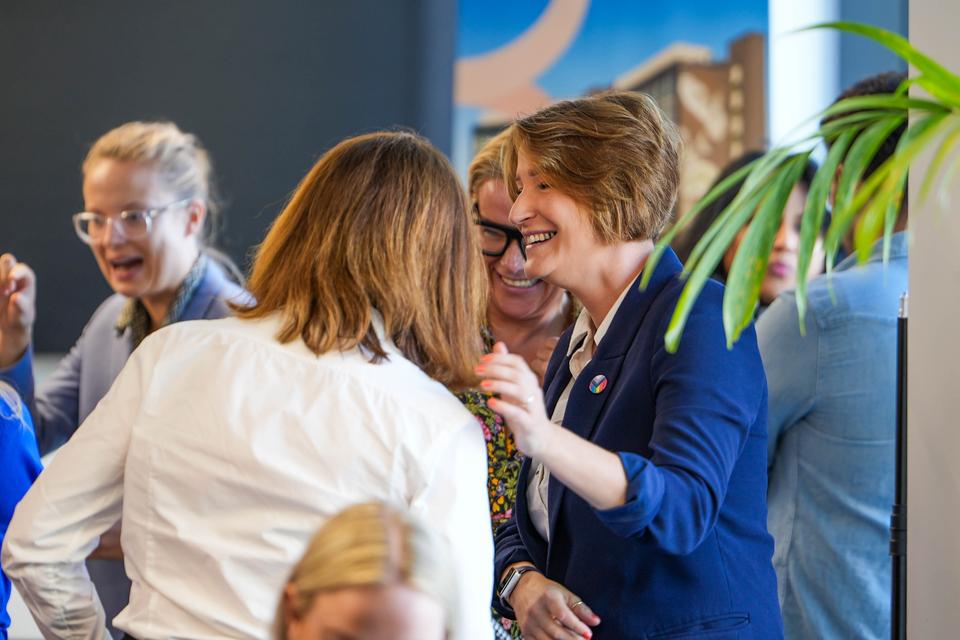International Day of Women and Girls in Science 2024
By Bruntwood SciTech

Women need science, and science needs women.
That is the fundamental message of International Day of Women and Girls in Science, which is celebrated on 11th February each year and serves to shed light on the gender imbalance which persists across STEM industries. Typically, women are given smaller research grants than their male colleagues and, while they represent 33.3% of all researchers, only 12% of members of national science academies are women. In cutting edge fields such as artificial intelligence, women represent only one in five professionals (22%) and they still account for just 28% of engineering graduates and 40% of graduates in computer science and informatics.
Coupled with recent forecasts suggesting that increasing the number of women working in STEM sectors can increase the UK’s labour value by at least £2 billion, it is clear that more needs to be done to address the gender imbalance in this space.
With International Women's Day also just around the corner, we're using today to reflect on the insights of some of the female leaders who inspire us most, as we shine a spotlight on Victoria Savage, Head of Biology INFEX Therapeutics Ltd, and Ruth Roberts, Director and Co-Founder ApconiX Ltd. Both businesses are based at Alderley Park, our world leading science and innovation campus in Cheshire, home to the UK’s largest single site life science campus, and these incredible leaders sat down with us to talk about their experiences as women working in STEM, the disparities in funding for female founders, and the advice they’d give to girls and young women about the industry.
What are your thoughts on the recent findings on funding disparity?
Recent figures show that less than 2p in every £1 of UK equity funding went to all-female founder businesses in 2022, which was no improvement on 2021. A lot of the funding disparity can arguably be addressed through representation, as so much of the disparity is a direct result of there being so few all-female founding teams.
Victoria Savage observed that “Research tells us that the most successful teams have a good diversity of cultures, including both men and women, to reflect different lived experiences. Encouraging more women into senior and leadership positions will positively impact companies and STEMs investment disparity.”
Why Are Female Founding Teams So Rare?
STEM’s lack of all-female founding teams is a highly complex issue. From a lack of female graduates seeking careers in STEM, through to existing societal biases around family life, there are a myriad of reasons behind the gender disparity in these industries.
As Victoria has argued: “Empowering girls from a young age to get involved in science and pursue careers in STEM subjects is key. You have to see it to be it. If there are more women here, others will think ‘that could be me’. But addressing inequalities that lie later on in a woman's working life are also important.”
In 2019, Alison Rose found that the UK economy could be boosted by £250bn and 1.1m more businesses if more was done to close the gender gap in British entrepreneurship. Whilst the economic incentive isn’t as important as the ethical one - it goes to show just how great the loss is when we don’t invest in female talent.
How Can I Break Gender Stereotypes as a Female Leader in STEM?
The balance of men and women pursuing careers in STEM subjects is slowly improving, but there’s a long way to go before equality is reached (we explore the topic in greater detail here). Female representation is important in all subjects, but in STEM there is significant disparity between men and women in the workforce. So there’s still plenty to be done to encourage more women and girls to study STEM subjects and pursue careers in these fields.
However, as shared by Ruth, there is much more awareness of equality in opportunity - driven primarily by progress in other sectors such as sport, especially football and rugby. This might accelerate the rate of change in STEM fields, too.
If the STEM industries don’t reflect the demographic of the UK, key talent is undoubtedly being overlooked. Over the next ten years, Victoria hopes to see us get much closer to achieving equality in STEM, saying: “The balance of men and women pursuing careers in STEM subjects is slowly improving, but we have a long way to go before equality is reached. We need to keep the issue on the global agenda until equality is achieved, and female talent is recognised.”
We agree wholeheartedly, and we’re looking forward to exploring this debate further for International Women’s Day. Stay tuned to our socials to see what we have planned!